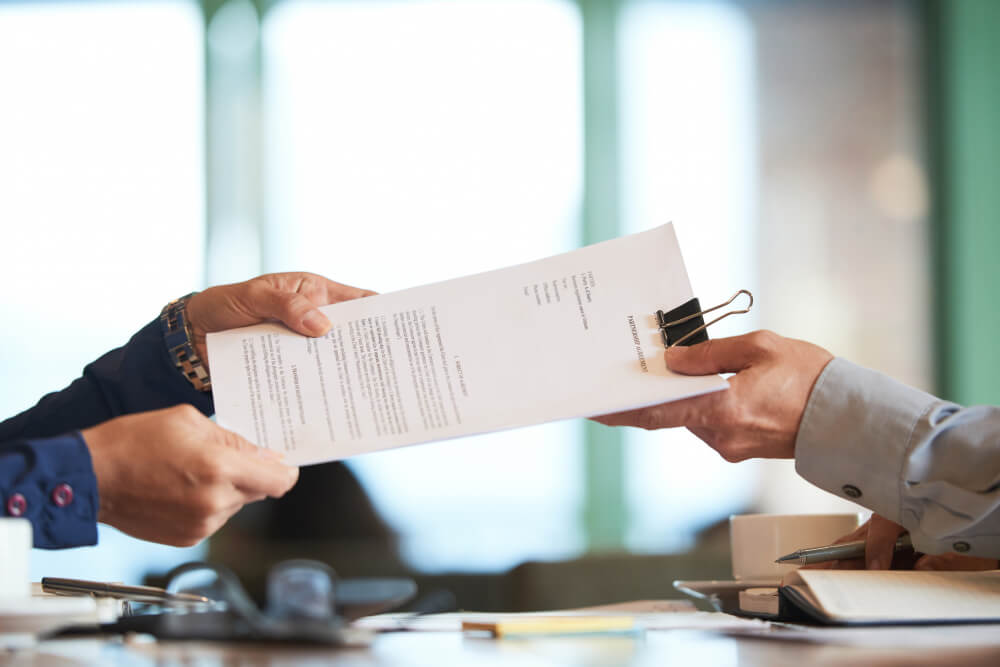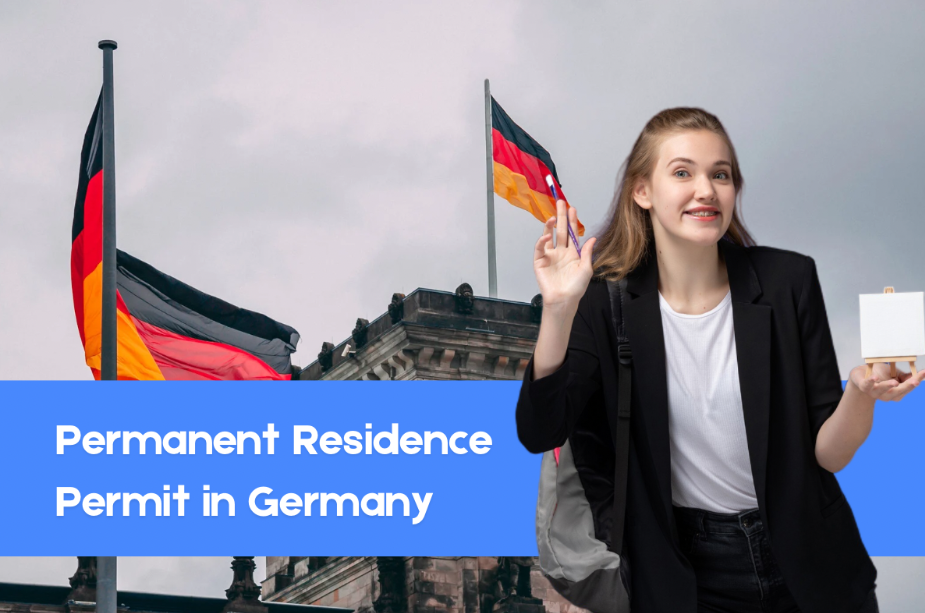Germany has become attractive for Indian students and professionals seeking long-term opportunities abroad. Over 42,000 Indian students studied in Germany during the 2023-24 academic year. For many, the next step after completing their education or gaining work experience is securing a permanent residence permit.
Understanding the Germany PR requirements is critical to making this transition smooth. From eligibility criteria to the application process, this guide will walk you through everything you need to apply for your permit and settle in Germany successfully. Let’s get started!
Key Highlights
Here is an overview of everything you will learn in greater detail in this blog on Germany PR requirements.
| Particulars | Description |
| Types of Resident Permit | Student Residence Permit, Job Seeker’s Permit, Employment Residence Permit |
| Benefits of Germany PR | Growing Indian Community, High Quality of Life, Cultural Integration |
| Germany PR Eligibility | Minimum Residence Duration, Financial Stability, Health Insurance |
| Top German Language Tests for Germany PR Requirements | Goethe-Zertifikat: A1 |TestDaF: B2 |TELC: A1 |
| Health Insurance Amount for Germany PR Requirements | INR 27.8L (€30K) |
| Standard Application Fee for PR Process for Germany | INR 12.5K (€135) |
| Types of Costs Involved in the PR Process for Germany | Application Fee, Document Translation, Document Notarisation |
Choose your dream country
When do you want to study abroad?
What's your highest level of education?
Select you current city
How Leap will help you
Personalised University Shortlist
Express Applications with Quicker Admits
End-to-End Application Support
What is a Permanent Residence Permit in Germany?
A permanent residence permit in Germany, or a Settlement Permit or Niederlassungserlaubnis, is your ticket to staying indefinitely in the country.
Germany is the world’s third-largest destination for international students, with over 450,000 students from across the globe. It offers a lively environment for those looking to make it their permanent home.
Here are some critical details of Germany PR requirements.
- Key Benefits: This permit allows you to live, work, and study in Germany without renewing your visa. It provides security and stability, especially for non-EU and non-EEA nationals.
Non-EU refers to countries that are not part of the European Union. These nations do not have the same rights and privileges as EU member states, such as freedom of movement within the EU.
Non-EEA, on the other hand, refers to countries not part of the European Economic Area, including EU countries, Iceland, Liechtenstein, and Norway. Non-EEA countries do not benefit from the same economic agreements or free movement rights as EEA members.
- Who It’s For?: If you’re not from the EU or EEA, the Settlement Permit is likely the pathway you’ll need to pursue to make Germany your permanent home.
- Permanent vs. Temporary: Unlike a temporary residence permit, which often restricts you to specific purposes and requires renewal, the permanent residence permit has no expiry date. This means you can plan your future in Germany without worrying about time limits.
Types of Residence Permits
Germany, ranked the 3rd cleanest country in the world, offers various residence permits to suit different needs. Whether you're a student, professional, or family member, there’s a permit tailored for you, helping you settle in this well-organised and welcoming country.
Germany offers various residence permits based on your stay purpose. Here’s a quick look at the main types.
1. Student Residence Permit
This permit is for international students enrolled in a German university. You’ll need to show proof of admission and financial resources. It allows limited work hours during your studies.
2. Job Seeker’s Permit
This permit lets you stay for up to 18 months if you're looking for a job in Germany. You’ll need proof of financial stability and ongoing job search efforts.
3. Employment Residence Permit
For those with a valid job in Germany, this permit matches the length of your work contract. You’ll need a job contract and proof of your employment status.
4. Residence Permit for Family Reunification
For family members joining residents in Germany. You must prove your relationship and financial support. Spouses need basic German language skills (A1 level).
5. Permanent Residence Permit
This is for individuals who have lived in Germany for at least five years (or three years if married to a German citizen). You’ll need proof of employment, financial stability, and B1-level German language proficiency.
6. EU Blue Card
For highly skilled workers. Valid for up to four years, this permit requires proof of employment, a minimum salary, and language proficiency. It can lead to permanent residency.
7. Temporary Residence Permit
A Temporary Residence Permit (Aufenthaltserlaubnis) is issued for specific purposes such as employment, education, or family reunification. It is typically valid for one year but can be extended.
- Employment: Granted based on a job contract. The permit’s validity matches the duration of employment.
- Education: Issued to students, covering the length of the course, with an option to extend for 18 months post-graduation to search for a job.
- Marriage: This is for spouses of German citizens or residents. Proof of marriage and basic German language proficiency are required.
Now that you’re familiar with the different types of residence permits, dive into the critical points for Germany PR requirements.
Critical Points for Germany PR Requirements
According to the Global Peace Index, Germany is the 20th safest country in the world, making it an attractive destination for long-term settlement.
To take advantage of this safety and stability, you must first fulfil specific eligibility criteria to meet the Germany PR requirements and apply for a permanent residence permit.
The Germany permanent residence rules are mentioned below.
- Minimum Residence Duration
You must have lived in Germany for at least five years. This period can be shorter if you hold an EU Blue Card or have graduated from a German university and found related employment.
- Financial Stability
You must demonstrate that you can support yourself and your family without relying on public funds. This means having a steady income and sufficient savings to cover living expenses.
- Health Insurance
Comprehensive health insurance of at least INR 27.8L (€30K) is non-negotiable. Whether statutory or private, your coverage must meet German standards.
- Living Space
Your home in Germany should be adequate for both you and your family. The authorities will check that your living arrangements are appropriate.
- Pension Contributions
You must have paid into the statutory pension insurance for at least 60 months. This shows that you’ve been contributing to the social security system.
- Integration Course
You may be required to complete an integration course covering the German legal system, culture, and history. This is particularly important if your German language skills still need to be at the required level.
- Language Proficiency
Proficiency in the German language is a must. You must prove your skills at the B1 level of the Common European Framework of Reference for Languages (CEFR). Here is a table with the accepted German language test and minimum scores.
| Germany PR Requirements (Language Test) | Score |
| Goethe-Zertifikat | A1 |
| TestDaF | B2 |
| TELC | A1 |
| DSD | A2/B1 |
Documents Required for Germany PR Application
Obtaining a permanent residence permit in Germany can be valuable if you've completed your studies and want to make the country your home. With the Germany PR requirements, securing a job is more accessible.
The Federal Employment Agency reports that 87% of international students with German degrees find employment. You’ll have many opportunities to build your career here.
Here is a list of documents that are a part of Germany PR requirements.

- Application Form: Complete the "Antrag auf Erteilung der Niederlassungserlaubnis" (Application for a settlement permit) form accurately.
- Biometric Photograph: A recent 35mm x 45mm biometric photo.
- National Passport: Valid with your current residency permit, not expiring within three months.
- Proof of Employment: Recent employment certificate and salary statements from the past six months.
- Proof of Health Insurance: Documentation of statutory or private health insurance.
- Proof of Pension Contributions: Certificate showing at least two years of pension contributions.
- Proof of Accommodation: The rental agreement and address registration certificate are acceptable. (Meldebescheinigung).
- German Language Certificate: B1 level proficiency in German.
- Integration Course Certificate: If applicable, include this to show course completion.
Are you dreaming of studying in Germany? Leap Scholar is here to guide you. From course selection to visa support, we simplify your study abroad journey. Book a call today.
Step-by-Step Guide to Apply for Permanent Residence in Germany
When applying for permanent residence, it’s important to be aware of the conditions for permanent residency in Germany. The process might seem complex, but breaking it down into manageable steps can make it much easier.
Did you know? With German being the fifth most spoken language in the world, it’s no surprise that language proficiency is a key part of the process.
By closely following the Germany PR requirements, you’ll be well on your way to securing your permit.
Step 1: Book an Appointment
Schedule an appointment with your local Immigration Office online to submit your PR application.
Step 2: Complete the Application Form
Collect the form and ensure you have all required documents, such as proof of employment, health insurance, and language proficiency. Double-check the official website for any additional paperwork.
Step 3: Prepare Documents
To avoid delays, ensure your documents, such as your passport, residence permit, and income proof, are up-to-date and complete.
Step 4: Attend the Interview
Go to your appointment, where an immigration officer will review your application and documents during an in-person interview.
Step 5: Pay the Application Fee
After your interview, you’ll need to pay the application fee. The fee, as mentioned below, differs based on your status.
- Skilled workers: INR 10.5K (€113)
- Self-employed individuals: INR 11.5K (€124)
Confirm the fee structure beforehand, as it can vary slightly depending on your circumstances.
Step 6: Wait for the Decision
Once you’ve completed these steps, the final part is waiting for the decision. Processing times may vary, but you’ll typically receive a response within a few weeks to a few months.
By following these steps and ensuring you meet the Germany PR requirements, you’ll be well on your way to securing permanent residency in Germany.
Germany PR Requirements: Cost Involved
When applying for a permanent residence permit in Germany, it’s essential to understand the associated costs. Interestingly, studying in Germany is 10.1% cheaper for Indian students than in the USA, making managing these costs easier.
Below is a table summarising the Germany PR requirements costs.
| Cost Type | Amount |
| Standard Settlement Permit Fee | INR 12.5K (€135) |
| Highly Qualified Workers Settlement Permit Fee | INR 23K (€250) |
| Self-employed Workers Settlement Permit Fee | INR 11.5K (€124) |
| Language Courses | INR 18K to INR 24K |
| Health Insurance | INR 27.8L (€30K) |
Germany PR Requirements: Special Considerations for Indian Applicants
As an Indian applicant, you must consider unique factors when applying for a permanent residence permit in Germany. These considerations can significantly impact your application’s success and your experience in the country.
Here are some of those factors to keep in mind.

- Language Proficiency: Since German is the fifth most spoken language in the world, having B1 level proficiency is crucial. It meets the Germany PR requirements and helps you integrate smoothly into daily life.
- Financial Management: While studying in Germany is 10.1% cheaper for Indian students compared to the USA, living costs vary by city. Having a clear financial plan will make your transition smoother.
- Employment Opportunities: A degree from a German university is a significant advantage. With an 87% employment rate for international students with German degrees, your chances of securing a job and meeting the PR requirements become much more attainable.
Germany is calling—are you ready? Leap Scholar helps you find the perfect university and secure your visa. Take the first step and book a call with our counsellors.
PR Process for Family Members and Special Categories
Germany has over 400 universities offering around 20,000 degree programs, making it an ideal place for everyone.
However, if you’re bringing your family or fall into a particular category, understanding the specific pathways for permanent residency in Germany is crucial.
Knowing the Germany PR requirements can ensure that everyone stays on track.
1. Family Members
Your spouse and children can apply for family reunification if you already hold a permanent residence permit. They’ll need to prove their relationship to you, and in your spouse's case, basic German language skills (A1 level) are required. Once approved, they’ll receive their residence permits, allowing them to live, study, and work in Germany.
2. EU Blue Card Holders
You're in a strong position if you hold an EU Blue Card. After 33 months of employment in Germany, you can apply for permanent residency. If you’re proficient in German at a B1 level, you can even shorten this period to 21 months. The EU Blue Card is a valuable asset, making the transition to permanent residency smoother and faster.
3. German University Graduates
Graduating from a German university puts you at an advantage. You can apply for permanent residency after just two years of employment in a field related to your degree. This expedited process is designed to retain skilled professionals who have already demonstrated their commitment to Germany through their education and work.
4. Self-employed Individuals
You can apply for Permanent Residency after three years if you're self-employed. Your business must be successful and sustainable, and you’ll need to prove that you can support yourself and your family. This pathway recognises the contributions of entrepreneurs to the German economy.
Life in Germany for Indians
Germany is an increasingly popular destination for Indian students and professionals. The country offers a high standard of living, excellent career opportunities, and a growing Indian community. Here are some critical aspects of life in Germany for Indians.

- Growing Indian Community: Over 260,000 Indians live in Germany, creating solid cultural ties and support networks.
- Education & Careers: Germany is a top destination for Indian students and professionals due to its excellent education system and strong economy.
- High Quality of Life: Germany offers safety, efficient public transport, and a well-organised infrastructure, enhancing daily life.
- Cultural Integration: Indian communities thrive in cities like Berlin, Munich, and Frankfurt, where there are Indian restaurants and cultural events.
- Language: Learning German helps with job opportunities and smoother integration into local life.
Conclusion
Securing a permanent residence permit in Germany is a significant step toward building a stable life in a country rich with opportunities. With over 400 universities offering 20,000 degree programs, Germany has something for everyone.
By meeting the Germany PR requirements and preparing well, you’re setting yourself up for success. Remember, it’s not just about getting the permit, it’s about embracing a future full of opportunities in a country that values talent and education.
Ready to study in Germany? Leap Scholar is here to help. From choosing the right university to handling your application and visa, we offer personalised support at every step.
Don’t let the process hold you back. With Leap Scholar, you’re on the path to a successful academic journey in Germany. Start your journey today with Leap Scholar.
Frequently Asked Questions
-
Q. What are some of Germany PR requirements?
Ans. The conditions for permanent residency in Germany include living there for at least five years, demonstrating B1-level German language skills, and having stable financial resources. You must also provide proof of health insurance, adequate living space, and pension contributions. Meeting these conditions for permanent residency in Germany ensures you are eligible for a permanent residence permit.
-
Q. Can I apply for a Permanent Residence Permit if I’m self-employed?
Ans. Yes, self-employed individuals can apply for a permanent residence permit in Germany. However, you must demonstrate that your business is thriving and financially sustainable. This means proving that your income can support yourself and any dependents without relying on public assistance. Meeting these financial criteria is critical to the Germany PR requirements for self-employed applicants.
-
Q. How do I apply for permanent residence in Germany?
Ans. First, to apply for permanent residence in Germany, ensure you meet the eligibility criteria, including living in Germany for five years and having B1-level German language proficiency. Gather all necessary documents, such as proof of income, health insurance, and pension contributions, and submit your application to the local immigration office. You may be required to attend an interview as part of the process.
-
Q. What happens if my Permanent Residence Permit application is denied?
Ans. If your application is denied, you will receive a written notice explaining the reasons for the decision. Common reasons for denial include incomplete documentation, failing to meet the required financial thresholds, or insufficient language skills. After addressing these issues, you can reapply, or you may choose to appeal the decision if you believe it was made in error.
-
Q. What are the German permanent residence rules?
Ans. German permanent residence rules include the following critical requirements as mentioned below.
You must have lived in Germany for at least five years.
German language proficiency is required.
Stable financial resources, including proof of income, are essential. -
Q. Can my family join me after I get a Permanent Residence Permit?
Ans. Yes, your family members, including your spouse and children, can join you in Germany through the family reunification process once you have a permanent residence permit. Your spouse must demonstrate basic German language skills (A1 level), and you must prove the family relationship. Once approved, your family members will receive residence permits to live, work, and study in Germany.
-
Q. What is the PR process for Germany?
Ans. The PR process for Germany involves meeting eligibility criteria like living in Germany for five years, having B1-level German language skills, and having stable financial resources. You must prepare and apply to the local immigration office (Ausländerbehörde), providing necessary documentation. If approved, you will receive a permanent residence permit, allowing you to reside and work in Germany indefinitely.
-
Q. How can I track my Permanent Residence Permit application status?
Ans. You can track the status of your permanent residence permit application by contacting your local immigration office by phone or email. Some offices also offer online tracking options. Staying in regular communication with the office handling your application can help you stay informed about any potential delays or additional documentation that might be required.
-
Q. Can I apply for German citizenship after obtaining a Permanent Residence Permit?
Ans. Yes, obtaining a permanent residence permit is often the first step toward applying for German citizenship. After holding a permanent residence permit for eight years, you may be eligible to apply for citizenship. However, you must meet additional requirements, such as demonstrating sufficient German language skills, passing a citizenship test, and proving that you can financially support.
-
Q. What are the key factors that determine Germany PR eligibility?
Ans. Germany PR eligibility is determined by several key factors. You need to have lived in Germany for a minimum of five years, possess German language proficiency, and demonstrate financial stability, including a steady income and pension contributions. You’ll also need proof of comprehensive health insurance and suitable living arrangements. Fulfilling these requirements is crucial for obtaining a Permanent Residence Permit.















Have Questions? Get Guidance to reach your Dream University
Connect with India's finest counsellors and biggest study abroad community.
Get Guidance